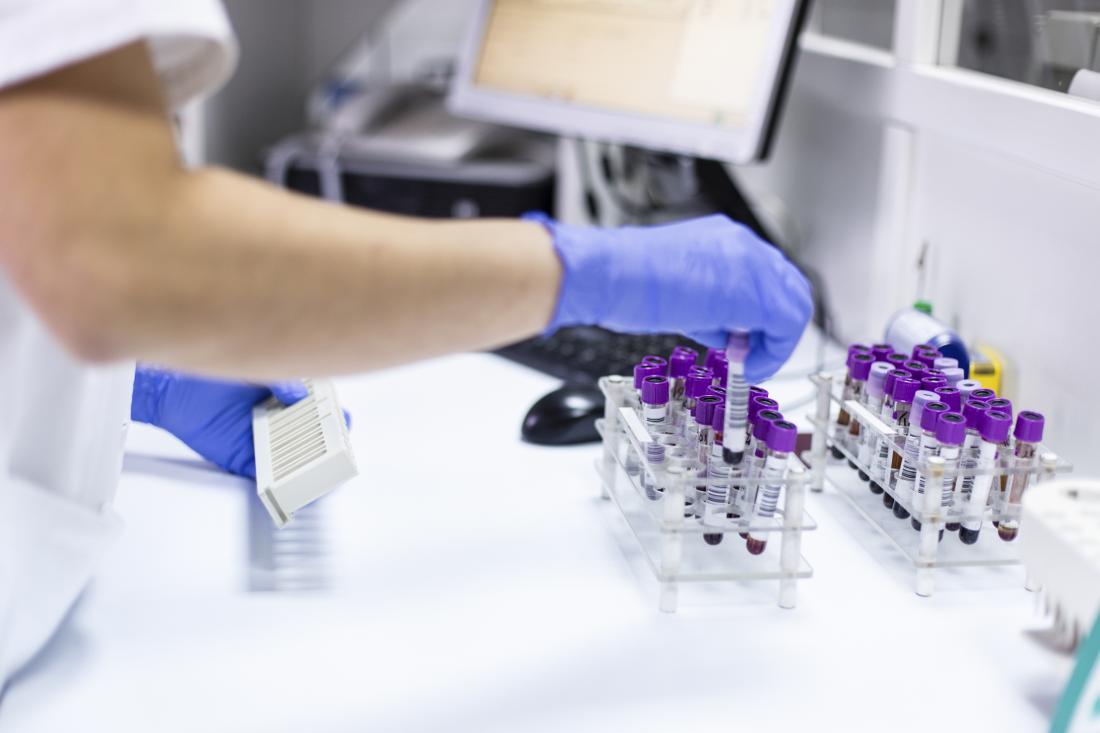The key to myasthenia gravis progression may be hidden in serum

Researchers have identified previously undetectable biomarkers that could help diagnose and direct the treatment of a rare autoimmune disease.
Autoimmune conditions are a class of disease in which a person's immune system produces antibodies to attack tissues in the body.
There are many types of autoimmune disease, and in a recent study, researchers focused specifically on myasthenia gravis (MG).
MG is a rare condition characterized by weakness and rapid fatigue of voluntary muscles. Symptoms often get worse after exertion.
MG is a chronic illness, and it can be debilitating and, in some cases, fatal. It affects between 14–40 people per 100,000 in the United States, and there is no known cure.
Treatment usually involves medications to increase levels of the organic chemical acetylcholine available to stimulate receptors and improve muscle strength, as well as drugs to suppress the immune system.
Historically, diagnosing MG has been difficult because symptoms often mimic those of other neurological conditions, such as stroke.
Now, a team of researchers — based at the University of Alberta, Edmonton, in Canada — has shown that MG can not only be detected, but its disease progression can be predicted by the presence of certain metabolic biomarkers in blood serum.
The researchers hope that their findings, which appear in the journal Metabolomics, will help clinicians diagnose this difficult-to-identify disease. Dr. Zaeem Siddiqi, a neurologist, and graduate student Derrick Blackmore, Ph.D., co-led the new research.
Why are biomarkers useful?
A biomarker is a small biological compound defined by its pathological significance in identifying certain diseases. Many diseases can be detected by the presence of biomarkers in blood serum, and these markers can help indicate the type of treatment that a person may respond best to.
"Biomarker discovery is an important step in individualized medicine," explains Dr. Siddiqi.
Currently, MG is diagnosed via the detection of acetylcholine receptor and anti-MuSK, or muscle-specific kinase, antibodies.
However, previous research has shown that these do not correlate with disease severity or clinical response. The identification of biomarkers to detect the severity of MG has remained elusive — until now.
The new study focused on three subject groups. The first consisted of 46 participants with MG, the second consisted of 23 participants with rheumatoid arthritis (a reference autoimmune disease), and the third comprised 49 healthy control participants.
The study was a two-control approach for metabolomics profiling. People with rheumatoid arthritis displayed physically identical symptoms to those with MG, and all participants were age- and gender-matched as closely as possible.
The researchers extracted serum from each person and analyzed its principal components. They then filtered the metabolites to remove those common to both disease cohorts, leaving just the unique markers, of which there were 12.
